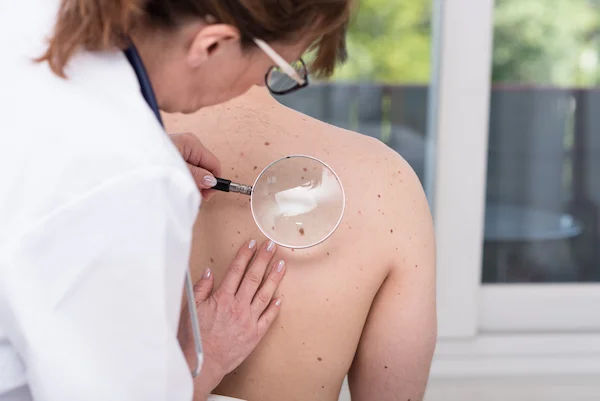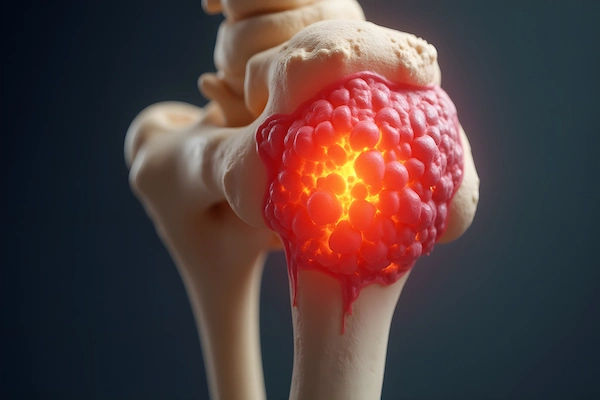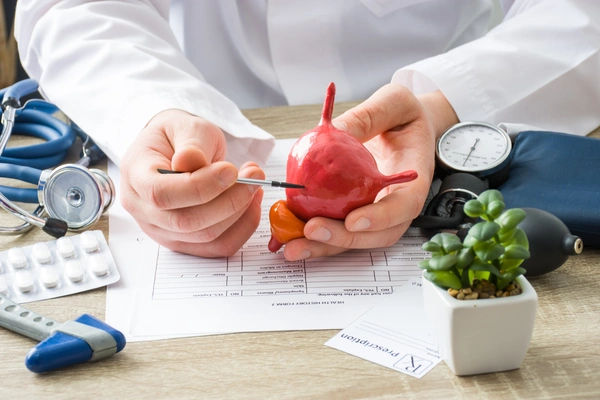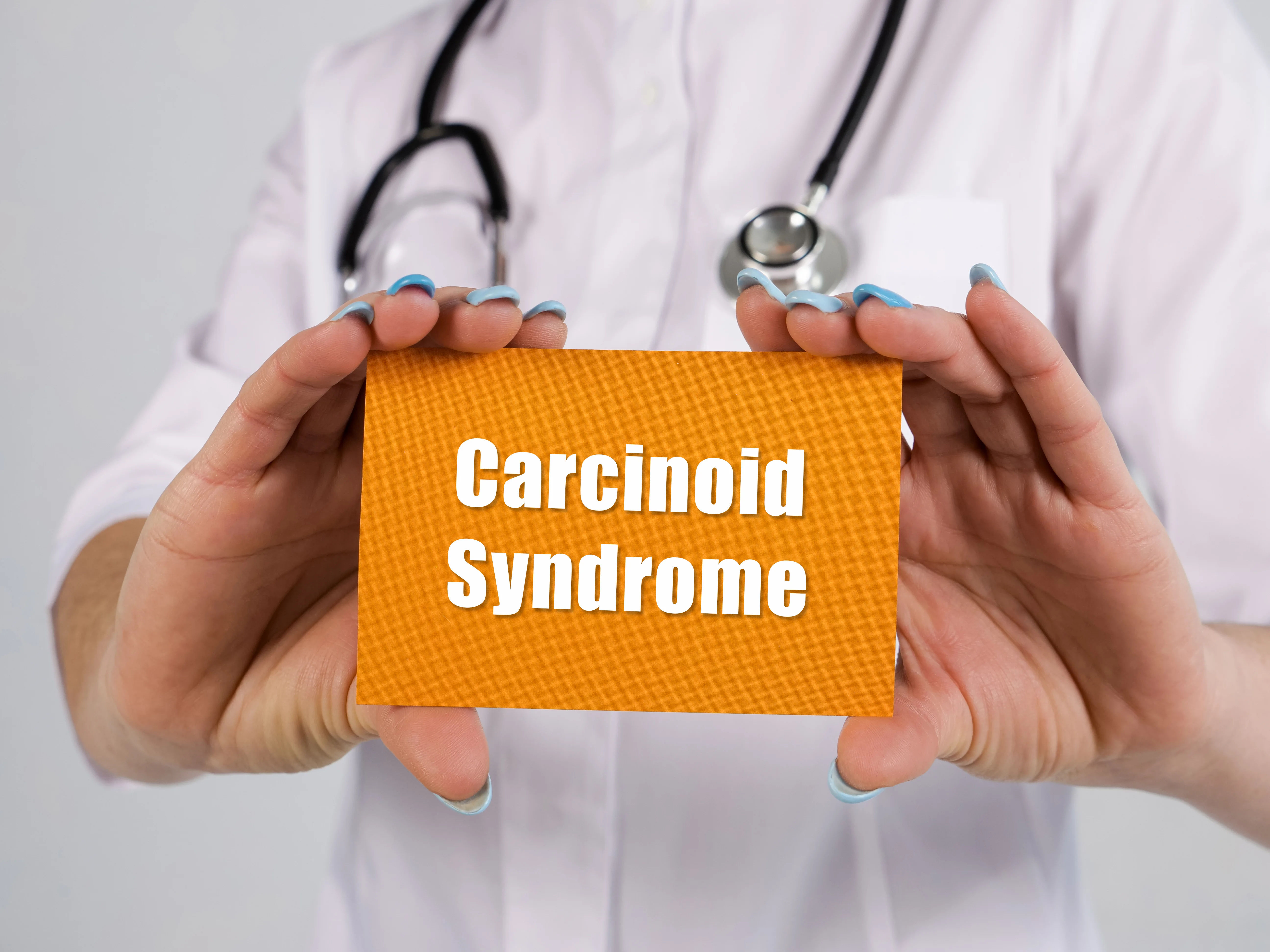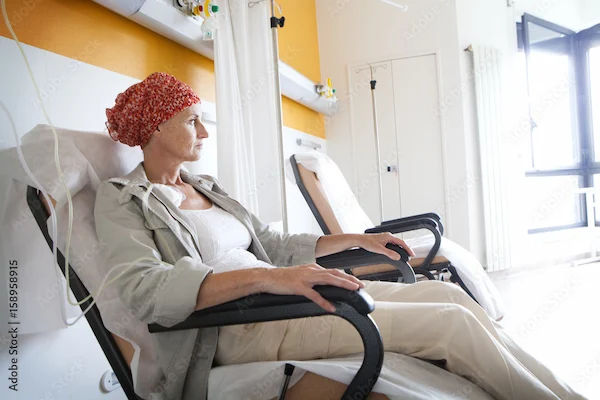Prostate Cancer Warning Signs and Risk Factors
Learn about the key warning signs of prostate cancer, major risk factors like age, family history, and lifestyle, and practical ways to reduce your risk through diet, exercise, and regular screening.

Written by Dr. M L Ezhilarasan
Reviewed by Dr. Dhankecha Mayank Dineshbhai MBBS
Last updated on 13th Jan, 2026

Prostate cancer is one of the most common cancers affecting men, especially as they age. While it can be a serious health concern, early detection and awareness can significantly improve outcomes. If you or a loved one is at risk, understanding the warning signs and risk factors can help in taking timely action.
What Is Prostate Cancer?
The prostate is a small gland in men that produces seminal fluid. Prostate cancer occurs when cells in this gland grow uncontrollably. Some forms of prostate cancer grow slowly and may not cause major harm, while others can be aggressive and spread quickly.
Warning Signs of Prostate Cancer
In its early stages, prostate cancer may not show noticeable symptoms. However, as the disease progresses, the following signs may appear:
1. Frequent Urination – Needing to urinate more often, especially at night.
2. Weak or Interrupted Urine Flow – Difficulty starting or maintaining a steady stream.
3. Pain or Burning During Urination – Discomfort while passing urine.
4. Blood in Urine or Semen – A concerning sign that should prompt a doctor’s visit.
5. Erectile Dysfunction – Difficulty achieving or maintaining an erection.
6. Pain in the Hips, Back, or Pelvis – Could indicate cancer spreading to bones.
7. Loss of Bladder or Bowel Control – In advanced stages, pressure on nerves may cause incontinence.
Note: These symptoms can also be caused by non-cancerous conditions like an enlarged prostate (BPH) or infections. However, if you experience any of these, consult a doctor for proper evaluation.
Risk Factors for Prostate Cancer
While the exact cause of prostate cancer is unknown, certain factors increase the risk:
1. Age
- Most cases occur in men over 50, with risk increasing significantly after 65.
2. Family History
- Having a father or brother with prostate cancer doubles your risk.
- Genetic factors (like BRCA gene mutations) may also play a role.
3. Race/Ethnicity
- African-American men have a higher risk and are more likely to develop aggressive forms.
4. Diet & Lifestyle
- A diet high in red meat and dairy may increase risk.
- Obesity is linked to more aggressive prostate cancer.
5. Smoking & Chemical Exposure
- Smoking and exposure to certain chemicals (like Agent Orange) may raise the risk.
How to Reduce Your Risk
While some risk factors (like age and genetics) can’t be changed, you can take steps to lower your risk:
- Eat a Healthy Diet – Focus on fruits, vegetables, whole grains, and lean proteins. Tomatoes, green tea, and soy may be beneficial.
- Exercise Regularly – Aim for at least 30 minutes of moderate activity most days.
- Maintain a Healthy Weight – Obesity is linked to worse prostate cancer outcomes.
- Limit Alcohol & Avoid Smoking – Both can contribute to cancer risk.
- Get Regular Check-ups – Men over 50 (or 45 if high-risk) should discuss prostate cancer screening with their doctor.
When to See a Doctor
If you experience any warning signs or have risk factors, don’t ignore them. Early detection through PSA blood tests and digital rectal exams (DRE) can help diagnose prostate cancer at a treatable stage.
Get Your Symptoms Checked now
Need a Consultation?
If you're concerned about prostate health, Apollo 24|7 offers expert consultations and diagnostic tests. You can easily book an appointment online and get the right guidance.
Final Thoughts
Prostate cancer is manageable when detected early. Knowing the warning signs and risk factors empowers you to take control of your health. If you or a loved one is at risk, don’t hesitate to speak with a doctor.
Consult Top Specialist
Consult Top Specialist

Dr Devashish Tripathi
Radiation Specialist Oncologist
20 Years • MBBS, PLAB, MRCP (UK)- General Medicine, FRCR (Oncology), Certificate of Completion of Training (CCT)- Clinical Oncology
Delhi
Apollo Hospitals Indraprastha, Delhi

Dr. Harsh J Shah
Surgical Oncologist
15 Years • MS, MCh (GI), DrNB (GI)
Ahmedabad
Apollo Hospitals Gandhinagar, Ahmedabad

Dr. Gopal Kumar
Head, Neck and Thyroid Cancer Surgeon
15 Years • MBBS, MS , FARHNS ( Seoul, South Korea ), FGOLF ( MSKCC, New York )
Delhi
Apollo Hospitals Indraprastha, Delhi
(25+ Patients)
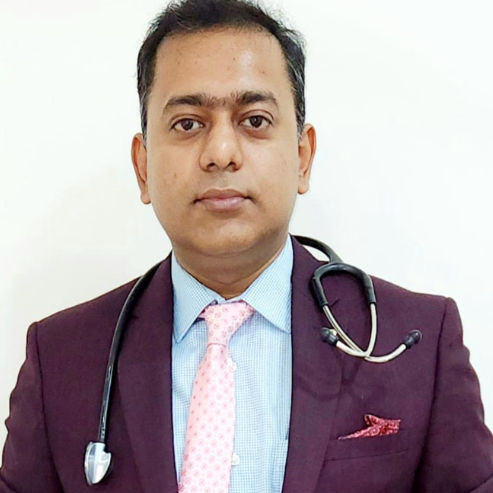
Dr.sanchayan Mandal
Medical Oncologist
17 Years • MBBS, DrNB( MEDICAL ONCOLOGY), DNB (RADIOTHERAPY),ECMO. PDCR. ASCO
Kolkata
Dr. Sanchayan Mandal Oncology Clinic, Kolkata

Dr. Rupam Manna
Radiation Specialist Oncologist
7 Years • MBBS MD(RADIO THERAPY), CCEBDM
Barasat
Diab-Eat-Ease, Barasat

